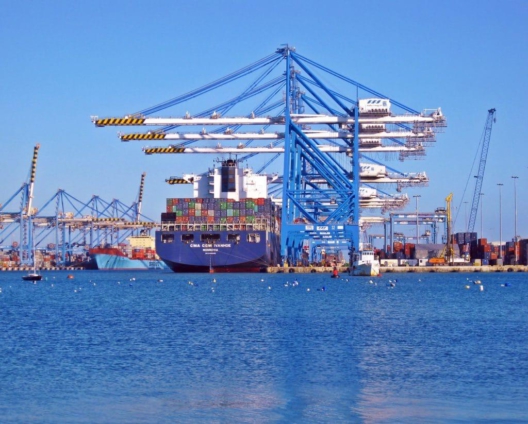Maritime experts say in spite of the policy directions and promising opportunities, developing Africa’s blue economy is limited by a number of challenges including maritime insecurity, human capacity and financial resources deficit.
This was revealed at the International Maritime Security Working Group (IMSWG) online series on developing blue careers to foster strategic development of the Gulf of Guinea organized by the Gulf of Guinea Maritime Institute (GoGMI)
The online series brought together maritime experts across the globe to deliberate on various components of the blue economy, such as fisheries, tourism and maritime transport – and emerging sectors such as offshore renewable energy, aquaculture, seabed industries and marine biotechnology which presents opportunities for the African continent to reap maximum benefits of utilizing its available resources for sustainable economic development.
For her part the Port Manager for the Lagos Port Complex Bolanle Olufunmilayo Olotu said there is a need to encourage the evolving labour force in countries within the Gulf of Guinea to consider and explore alternative career options, recognize the role academic institutions play in producing labour force for this emerging career diversity within sectors of the blue economy and encourage and strengthen collaboration between academia and the maritime industry.
Dr Douglas Wallace from the Development of Ocean Technical Capacity with African Nations (DOTCAN) added that Canada and West Africa should leverage on their commonalities to build capacity in three strategic focal areas; Technical and Vocational Education in Ocean Technology and Business, West African Sustainable Ocean Business Hub, and West African Maritime Security and Maritime Domain Awareness Training Program.
They reassured their support in continuously building a network of partnerships across the Atlantic Ocean. Specifically on Technical and Vocational Education in Ocean Technology and Business.
Dr Felix Addo-Yobo, director of policy at the National Planning Development Commission of Ghana said the commission acknowledges the marine sector as an important contributor to the country’s socio-economic development.
Also that inline with the Sustainable Development Goal 14 Ghana has plans to develop and strengthen governance institutions for the development of its marine industry, starting with effective management of marine resources.
The online series was organized by the Gulf of Guinea Maritime Institute (GoGMI) a maritime think- tank and research institute.
Latest Stories
-
We’ll review, analyse, and ensure proper accountability – Jinapor on Gold for Oil policy
4 minutes -
Jinapor unveils ambitious plan to revive dormant refinery
5 minutes -
Breaking barriers: The inspiring tale of a single mother who achieved her PhD dreams on a foreign land
13 minutes -
Afenyo-Markin walks out on Appointment Committee during Ayine vetting
24 minutes -
KNUST appoints Kwasi Debrah as Digital Communications Officer
51 minutes -
Volta Region to receive fair share of appointments in Mahama’s gov’t – V/R NDC Chairman
57 minutes -
Timely and strategic approach to revitalise Ghana’s agricultural sector is needed – Klutse Kudomor
1 hour -
Fuel supply, financial challenges top priorities for energy sector – John Jinapor
1 hour -
We won’t engage in sole sourcing for ECG private sector participation – Energy Minister-designate
1 hour -
Photos from John Jinapor’s vetting for Energy Minister role
1 hour -
Public procurement and corruption in Ghana: Challenges and sustainable solutions
2 hours -
Seize campaign activities, work on rebuilding party – NPP Council of Elders tells members
2 hours -
We don’t intend to privatise VRA and Bui Power – John Jinapor
2 hours -
Import substitution strategies in the 24-Hour Economy: A catalyst for Ghana’s practical economic growth
2 hours -
Chamber of Aquaculture urges President Mahama to nominate a Minister with agribusiness expertise
3 hours

